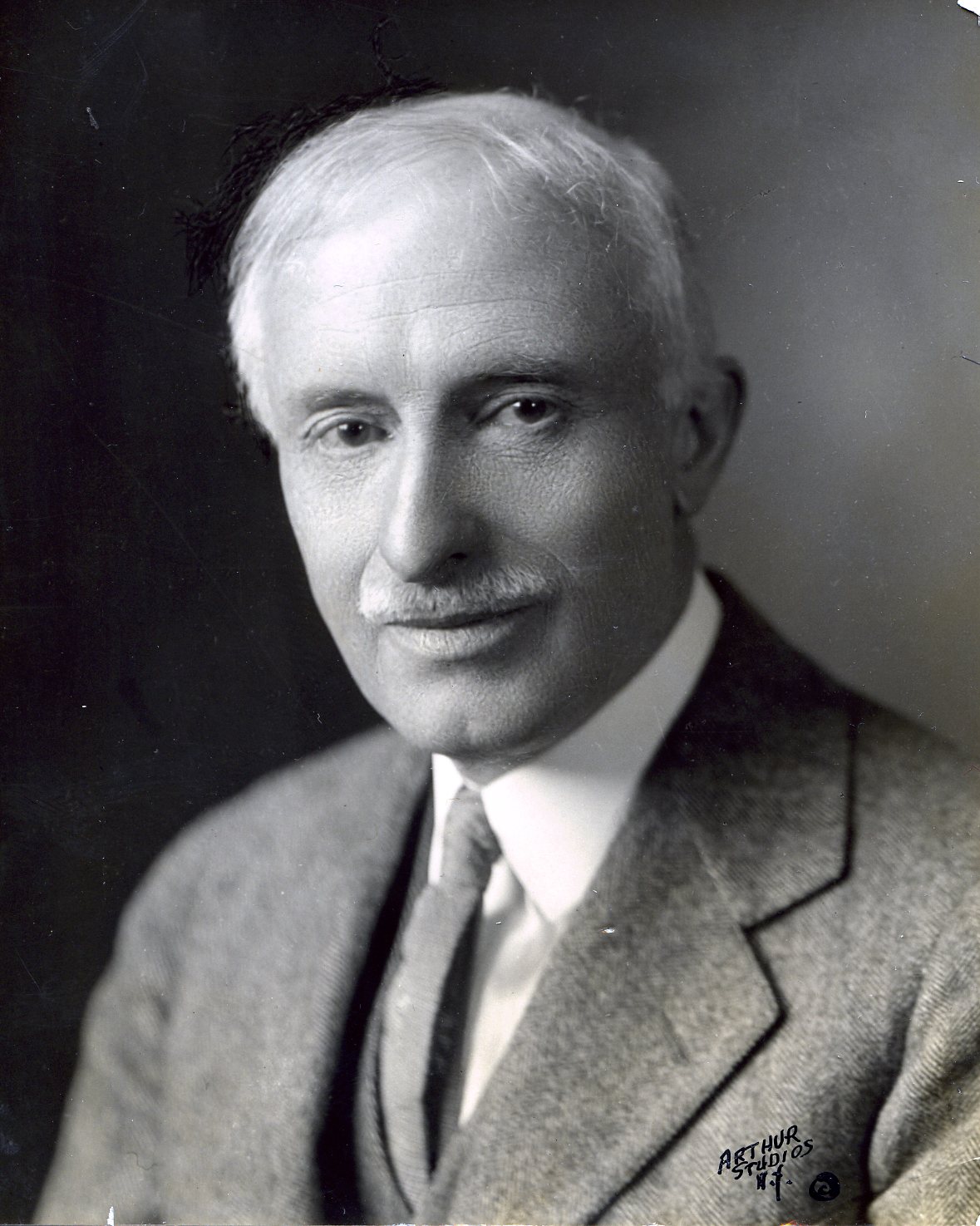Legislative Drafting
Centurion, 1920–1951
Born 1 October 1873 in Cleveland, Ohio
Died 21 May 1951 in New York (Manhattan), New York
Proposed by William A. Dunning and Charles Downing Lay
Elected 6 March 1920 at age forty-six
Century Memorial
Joseph P. Chamberlain was elected to the Club in 1920 and he died in 1951. He was a lawyer; but his interests were all in public affairs and he spent but little time in private practice.
From 1923 until his retirement in 1950 he was a member of the faculty of political science at Columbia, and after 1927 he was a member of the faculty of law. He saw plainly that statutes were an essential complement to the development of the common law, and he devoted himself and a large part of his patrimony to the development of proper drafting and interpretation of legislation. Apparently at the beginning of the century legislators drafted their own bills or they were drafted by interested and not very literate citizens, and the unorganized mass of unintelligible gibberish which got into the statute-books was incredible.
He became director of the Legislative Drafting Research Fund of Columbia. This functioned as a laboratory and training base in matters of legislation and constitutional law and rendered exceedingly valuable services to government agencies and to private enterprises. Here he trained young lawyers to learn the business of drafting, and some of these were sent to Washington to help Congressmen as volunteers. They achieved great success and won the confidence of the members of Congress, and some of them later became Legislative Counsel for the House, and others Legislative Counsel for the Senate, which offices were eventually made permanent. The offices still continue and present a singularly expert and non-political island of technical competence, drafting legislation expertly for the chairmen of committees.
Chamberlain was a very humble, modest, unassuming man. He was well endowed, but he took a stealthy pleasure in riding on the subways and eating in Childs restaurants and being very generous in helping individuals and causes that he was interested in. He was wise, not sloppy, in his good deeds. His talents were of a very high order, and the city and the government are the fortunate beneficiaries of his intelligent labors.
George W. Martin
1951/1952 Century Association Yearbook

